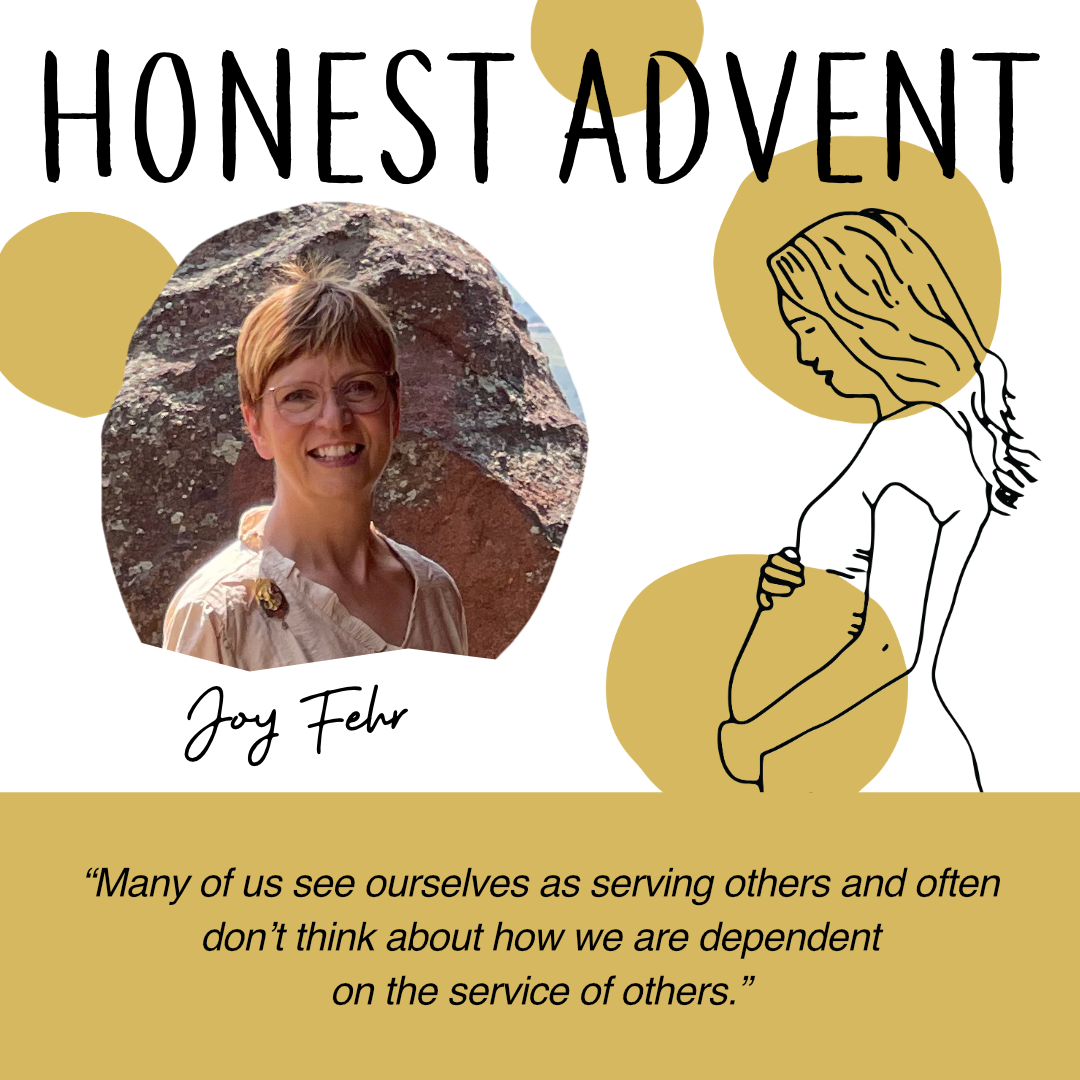“It’s easy to think of us as needing Jesus, but it’s pretty scandalous to think that Jesus would need us…” (Erickson, 183).
Last night Cornelius and I watched an episode of Call the Midwife. The Poplar community rescues four severely neglected children who are living in horrific conditions. The youngest of the four, a baby, has been in the same diaper for weeks if not months. Dr. Turner, who gently peels off the filthy cloth, notes that she probably will need skin grafts to repair the damage. This baby, these children needed the care of a parent, someone to feed them, clothe them, provide them with shelter, someone to give them what they could not give themselves.
I agree with Scott Erickson that it’s “easy to think of us as needing Jesus, but it’s pretty scandalous to think that Jesus would need us” (Erickson, 183). It’s not as though I’ve never thought of Jesus as having human needs, but those needs were always overshadowed for me by my belief in Jesus as God. God is all powerful, and, thus, can supply all needs, including God’s own, whenever, wherever, and however God wishes. Our needs are the needs that are not so magically fulfilled.
But, as Erickson points out, Jesus was fully human, and as such had very real human needs:
“Did He not receive nourishment as a baby?
Did He not live in a house that His parents provided?
Did He not wear clothes that others had meticulously woven?” (Erickson, 181).
The implication of these questions gives me pause. I have always thought that while God could accomplish all God wishes on God’s own, God gives us the opportunity, indeed the privilege, to partner with God in furthering God’s purposes in the world.
Jesus wasn’t rescued by the midwives of his day. He didn’t need skin grafts and lice carefully picked out of his hair, because he had parents, Mary and Joseph, who met his needs. Jesus needed the care of other people. He would not have survived childhood without it. He would not have lived as an adult without it. There would have been no Jesus to turn water into wine, to cast out demons, to heal the sick, to feed the 5,000+, to raise Lazarus from the dead, or to pay the ultimate price to restore us to our Creator were it not for the many humans in Jesus’ life who met his needs. Simply put, salvation wouldn’t have happened without us.
Jesus. Needs. Us.
I am scandalized by the revelation.
The scandal for me, however, isn’t contained to the realization that Jesus needs us/me because Erickson’s questions also encouraged me to think about the ways people have met my needs:
“Have you, being fully human, ever lived a life separate from relationships?
Did you not need someone to change your diapers as a baby?
Did you not take a steady hand when learning how to walk?
Did you not say, ‘Mama, look,’ when finishing your fourteenth Crayola
masterpiece of the day?
Did you not confide a secret to your trusted bestie?
Did you not giggle until it hurt with someone at an inappropriate time?
Did you not let them buy you dinner when you were low on funds?
Did you not feel healed by a hug from someone who loved you?” (Erickson, 180).
I am ashamed to admit that when I first pondered the question of how others had met my needs, all I could think of were the needs of others and how I had met or was trying to meet their needs. That is probably a result of my role as an administrator, my experience as a woman, and my firmly held Christian faith. I am deeply conditioned to regard myself as moving through life meeting others’ needs, and I strongly suspect that I am not alone in this perspective. Many of us see ourselves as serving others and often don’t think about how we are dependent on the service of others.
Erickson’s last question broke the logjam for me: “Do you not feel healed by a hug from someone who loved you?” I remembered the people who reached out to me with love and compassion when my mother died: the pastor who hugged and prayed with me; my sister and brothers who wrapped their arms around me in the midst of their grief; my husband who quietly cared for my father; the cousin who called the moment I walked in the door when I came home from saying goodbye to my mother for the last time; his sister who called the next morning before I had even gotten out of bed; my department chair and friend who was the first to our house with the gift of food; the scores of family, friends, and coworkers who shared in my grief by attending Mom’s funeral; the best friend who stayed with me at the graveside until everyone had left. The list of people who met my needs in that one moment alone is virtually endless.
The floodgates opened and I realized once again and for the first time that I would not be here today were it not for the people in my life who meet my needs. My Canadian families. My American families. My La Sierra family. On this Christmas Eve, I am overwhelmed by the realization that God needs me and that I need you. I am doubly blessed. I pray that you find similar blessings this Christmas season.
Joy A. Fehr serves as La Sierra University’s fourth president and is spending her fourth Advent as part of this community.

